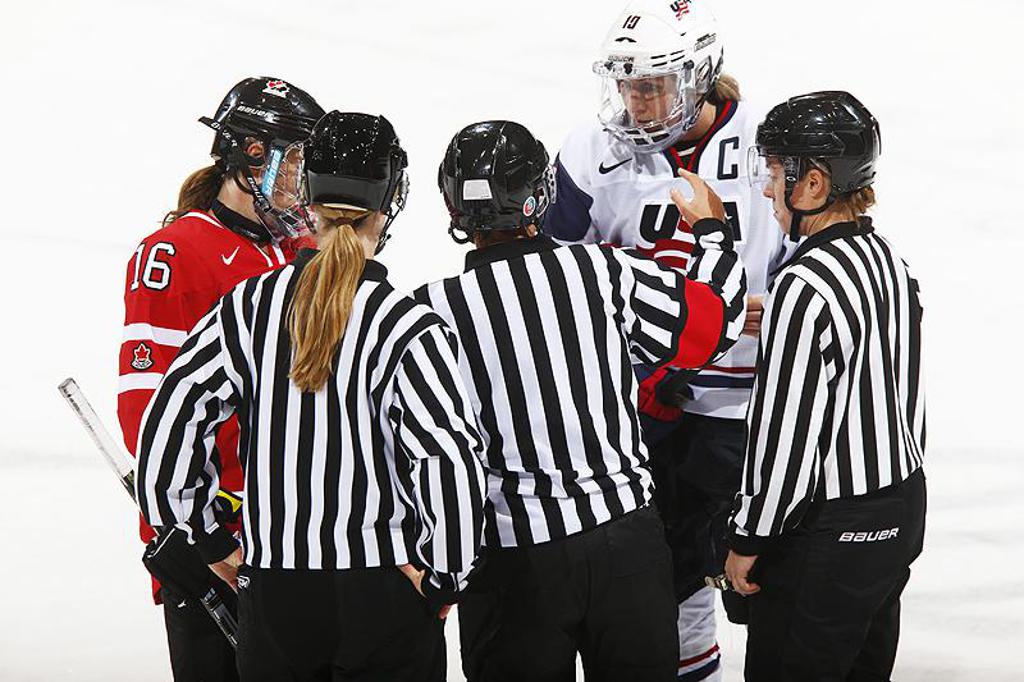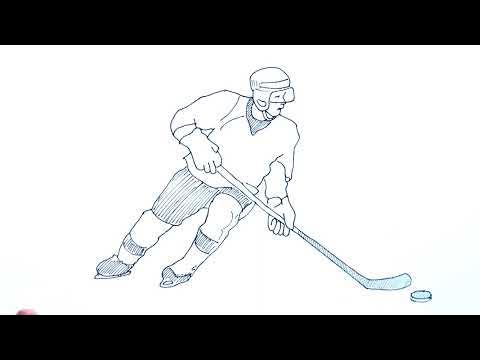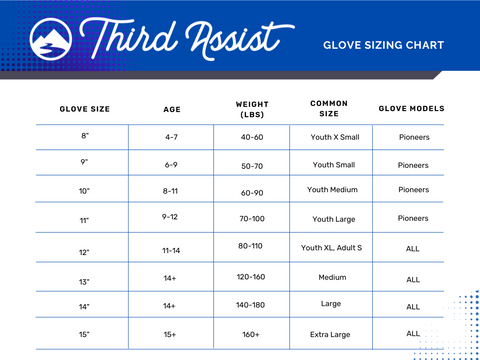Becoming an ice hockey referee is a rewarding challenge. It requires dedication, knowledge, and a passion for the game.
Ice hockey referees play a crucial role in ensuring fair play and maintaining the game’s integrity. This role demands not just a love for ice hockey but also a deep understanding of its rules and regulations. If you are passionate about ice hockey and want to contribute to the sport in a meaningful way, becoming a referee might be the perfect path for you.
This guide will walk you through the steps needed to start your journey as an ice hockey referee. From understanding the basic requirements to the necessary training and certifications, we’ll cover everything you need to know. Get ready to take the first step towards an exciting career on the ice!

Credit: www.refrsports.com
Introduction To Ice Hockey Refereeing
Becoming an ice hockey referee starts with understanding the rules of the game. Training programs and certification are essential steps. Gaining experience through local leagues helps build confidence and skills.
Becoming an ice hockey referee is an exciting and rewarding journey. It requires knowledge, dedication, and a love for the game. Referees play a crucial role in maintaining the flow and fairness of the match. They ensure that players follow the rules and that the game is played safely.Importance Of Referees
Referees are essential to any ice hockey game. They enforce the rules and keep the game fair. Without referees, games would be chaotic and unsafe. They help maintain discipline on the ice. Their decisions impact the outcome of the game. Referees also protect players by penalizing dangerous plays.Roles And Responsibilities
An ice hockey referee has many roles. They call penalties, stop the game when needed, and ensure player safety. They must know the rules inside and out. Referees also communicate with players and coaches. They explain decisions and manage disputes. Their presence keeps the game smooth and fair. “`
Credit: www.refrsports.com
Essential Skills For Referees
Becoming an ice hockey referee requires a unique set of skills. You need to be able to keep up with the fast-paced game. You also need to ensure the game is played fairly. Let’s explore the essential skills that every ice hockey referee must have.
Skating Proficiency
Skating skills are crucial for ice hockey referees. You must be able to skate backward and forward quickly. Balance and agility on skates are key. You must keep up with the players. Practice different skating techniques to improve. Strong skating skills help you get into the right position. This ensures you can make accurate calls.
Rule Knowledge
A deep understanding of the game’s rules is vital. You must know all the rules and regulations. This includes minor and major penalties. You should study the official rulebook often. Attend training sessions and seminars. Keeping your knowledge current is important. This helps you make fair and correct decisions. Being confident in your rule knowledge improves game management.
Required Certifications
Becoming an ice hockey referee requires specific certifications. These certifications ensure you have the necessary skills and knowledge. They also provide a pathway for career advancement. Let’s dive into the details of the required certifications.
Certification Levels
Ice hockey referee certifications come in different levels. Each level represents a step in your career.
| Level | Description |
|---|---|
| Level 1 | For beginners, covering basic rules and on-ice training. |
| Level 2 | Intermediate level, focusing on advanced rules and game management. |
| Level 3 | For experienced referees, with emphasis on higher-level game scenarios. |
| Level 4 | Elite level, preparing for professional and international games. |
Certification Process
The certification process involves several steps. These steps ensure you are well-prepared for the role.
- Register with the governing body for ice hockey referees.
- Complete the required training courses for your desired level.
- Pass a written exam to test your knowledge of the rules.
- Attend on-ice training sessions to hone your practical skills.
- Receive feedback from experienced referees and mentors.
Once you complete these steps, you will receive your certification. This certification allows you to officiate games at your certified level.

Credit: www.wikihow.fitness
Training Programs
Training programs are essential for becoming a skilled ice hockey referee. These programs help you understand the rules and develop the necessary skills. You will participate in on-ice training and classroom sessions to gain the knowledge and experience needed for the role.
On-ice Training
On-ice training is crucial for learning the physical aspects of refereeing. You will practice skating, positioning, and signaling. These skills are important for maintaining control during a game. Skating drills help you move quickly and efficiently on the ice. Proper positioning allows you to see the play clearly and make accurate calls. Signaling ensures that players, coaches, and fans understand your decisions.
Classroom Sessions
Classroom sessions cover the rules and regulations of ice hockey. You will learn about penalties, offside rules, and other important aspects of the game. These sessions also teach you about game management and conflict resolution. Understanding the rules helps you make fair and consistent calls. Learning about game management helps you handle difficult situations calmly. Conflict resolution skills are key for dealing with disputes on the ice.
Gaining Experience
Gaining experience is essential to become a successful ice hockey referee. It helps you understand the game better and improve your skills. There are several ways to gain experience, and two of the most effective are local leagues and mentorship opportunities.
Local Leagues
Start by volunteering at local leagues. These leagues often need referees and welcome new faces. Volunteering here allows you to practice and refine your skills. You will get to know the rules and how they are applied during games. Plus, you will build confidence as you manage different situations on the ice.
Local leagues also offer a supportive environment. Coaches and players often give feedback, which helps you improve. You will learn how to communicate effectively with players and other referees. This experience is invaluable as it prepares you for higher levels of officiating.
Mentorship Opportunities
Mentorship is another excellent way to gain experience. Find a seasoned referee willing to guide you. A mentor can offer advice, share experiences, and help you navigate challenges. They provide insights that you might not get from books or training sessions.
Watching your mentor in action is also beneficial. You see how they handle disputes, enforce rules, and maintain control. This firsthand observation helps you develop your style. It also allows you to ask questions and get immediate answers. Building a relationship with a mentor can accelerate your growth as a referee.
Advanced Techniques
Learn advanced techniques to become an ice hockey referee. Gain insights on positioning, communication, and rule enforcement. Enhance your refereeing skills to manage fast-paced games effectively.
Becoming an advanced ice hockey referee means mastering specialized techniques. These skills help manage the game and handle conflicts effectively. Advanced techniques ensure the game runs smoothly and fairly. This section will cover key areas you need to focus on.Game Management
Effective game management is crucial for an ice hockey referee. It involves understanding the flow of the game and making quick decisions. You need to anticipate plays and be in the right position. Always keep an eye on the puck and players. Clear communication with other officials is vital. Use hand signals and verbal cues to convey decisions. Staying calm under pressure helps maintain control.Conflict Resolution
Conflict resolution is an essential skill for referees. Ice hockey can be intense, leading to disputes among players. You must address conflicts quickly and fairly. Listen to all sides before making a decision. Use a firm but respectful tone. Explain your decisions to the players and coaches. This transparency builds trust and reduces tension. Knowing the rules thoroughly helps you resolve conflicts effectively. Stay neutral and avoid taking sides.Fitness And Health
Becoming an ice hockey referee is a challenging yet rewarding journey. One crucial aspect is maintaining top-notch fitness and health. Referees need to keep up with fast-paced games. They must be both physically and mentally prepared. Here’s how to achieve that.
Physical Conditioning
Physical conditioning is essential for an ice hockey referee. You need to skate swiftly, make quick decisions, and maintain stamina throughout the game.
- Cardiovascular Training: Engage in activities such as running, cycling, or swimming. Aim for at least 30 minutes of cardio, 5 times a week.
- Strength Training: Focus on core and leg workouts. Exercises like squats, lunges, and planks can help.
- Flexibility: Incorporate stretching routines or yoga. This helps in preventing injuries and maintaining agility.
Mental Preparedness
Mental preparedness is as important as physical fitness. An ice hockey referee needs to make quick, accurate decisions under pressure.
- Focus: Practice mindfulness or meditation. This helps improve concentration during the game.
- Rule Knowledge: Continuously study the game rules. Familiarity with rules enhances decision-making skills.
- Stress Management: Engage in activities like deep breathing exercises. This helps in managing stress levels during intense moments.
In conclusion, maintaining fitness and health is paramount for an ice hockey referee. A well-rounded approach to physical and mental conditioning ensures peak performance on the ice.
Career Advancement
Becoming an ice hockey referee is an exciting journey. Once you have the basics covered, you may want to advance your career. Career advancement can lead to better opportunities and higher levels of competition. This section will cover some key aspects to help you move forward in your refereeing career.
Networking Tips
Networking is crucial for career growth. Connecting with others in the industry can open doors to new opportunities. Here are some tips:
- Attend events: Participate in ice hockey events and gatherings.
- Join associations: Become a member of referee associations.
- Online presence: Use social media to connect with other referees.
- Mentorship: Seek out experienced referees for guidance.
Professional Development
Continuous learning helps you stay updated with the latest rules and techniques. Here are some ways to develop professionally:
- Training courses: Enroll in advanced referee courses.
- Workshops: Attend workshops and seminars.
- Certifications: Obtain higher-level certifications.
- Practice: Regularly officiate games to refine your skills.
Additionally, here is a table summarizing some key resources for professional development:
| Resource | Details |
|---|---|
| USA Hockey | Offers courses and certifications for referees |
| Hockey Canada | Provides training and development programs |
| International Ice Hockey Federation (IIHF) | Hosts international workshops and seminars |
Challenges And Rewards
Becoming an ice hockey referee is both challenging and rewarding. You need to have a deep understanding of the game and maintain a high level of fitness. The role can be demanding, but it also offers many benefits. Let’s explore the common challenges and benefits of being an ice hockey referee.
Common Challenges
Ice hockey is a fast-paced sport. Referees must make quick decisions. This can be stressful. Mistakes are inevitable, and fans can be unforgiving. Dealing with criticism is a part of the job. You need to stay calm under pressure.
Maintaining physical fitness is crucial. Skating for long periods can be exhausting. You must be in good shape to keep up with the game. Injuries can happen. Protecting yourself while enforcing rules is a constant challenge.
Benefits Of Being A Referee
Despite the challenges, being a referee is rewarding. You stay involved in the sport you love. You get a unique perspective on the game. Your knowledge and skills improve with experience.
Referees often build strong relationships. You meet players, coaches, and other officials. These connections can be valuable. The role also offers a sense of achievement. Making the right call in a tough situation feels great.
Finally, being a referee can be a paid opportunity. Many leagues offer compensation for your time and effort. This can be a good way to earn money while enjoying the sport.
Frequently Asked Questions
How Do I Start As A Hockey Referee?
To start, join a local hockey association. Complete the required training and certification courses. Gain experience by officiating youth games.
What Qualifications Are Needed To Be A Hockey Referee?
You need to complete certification courses, pass a background check, and have good skating skills. Continuous education is important.
How Much Do Ice Hockey Referees Make?
Ice hockey referees can earn between $30 to $200 per game. Earnings depend on the level of play and experience.
How Long Does It Take To Become A Certified Referee?
The certification process can take a few weeks. This depends on the course schedule and your availability.
Conclusion
Becoming an ice hockey referee takes dedication and passion. Start with basic training. Gain experience through local games. Stay updated on rules and regulations. Build strong communication skills. Be prepared for physical demands. Join referee associations for support. Keep improving and learning.
Enjoy the journey and the love for the game.



